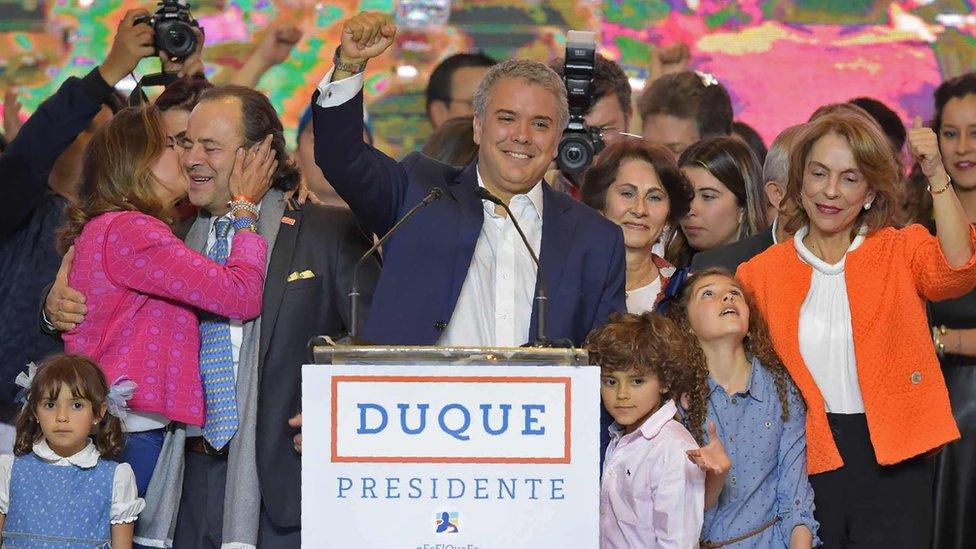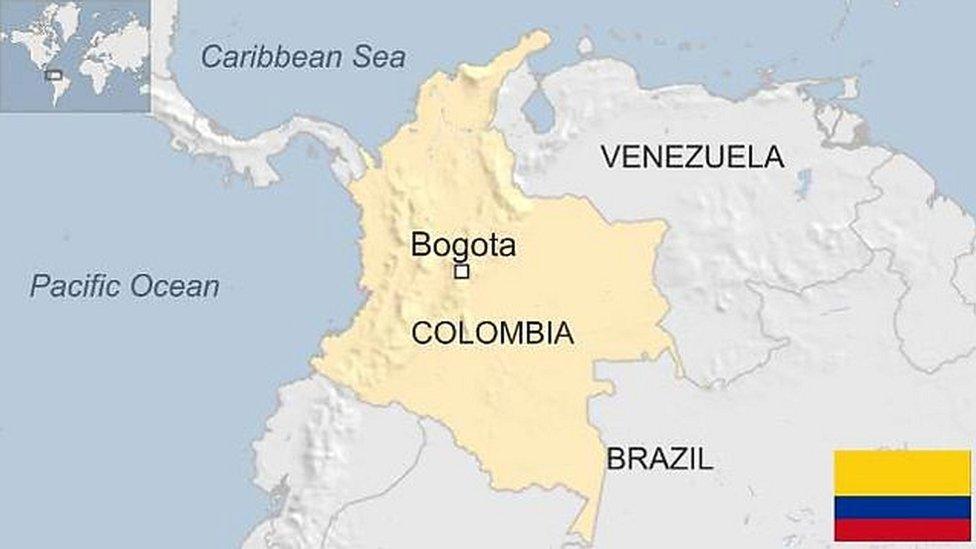Colombia's president-elect Duque wants to 'unite country'
- Published

Iván Duque celebrates with his family and supporters in Bogotá
Iván Duque, the conservative political newcomer who was elected as Colombia's president on Sunday, says he wants to unite the Andean country.
Mr Duque spoke of mending the fissures which had opened up in Colombia after a divisive election campaign.
But he also said he wants to see changes to the historic but controversial peace deal agreed with Farc rebels in 2016.
Mr Duque beat his left-wing rival, Gustavo Petro, by 12 percentage points.
He received 54% of the vote in Sunday's run-off election.
The 41-year-old candidate for the Democratic Centre party says he will overhaul the agreement that guaranteed the rebels seats in Congress and allowed them to contest elections.
He also says he will impose tougher punishments on crimes allegedly committed by the rebels during the brutal five-decade conflict with the government.
"With humility and honour, I tell the Colombian people that I will give all my energies to unite our country. No more divisions," he told a crowd of jubilant supporters.
"I will not govern with hatred."
Mr Duque is viewed as the business-friendly choice because he wants to cut taxes and boost investment, raising money by shrinking the state.
His running mate, Marta Lucía Ramirez, will become Colombia's first female vice-president.

Fear of the left won out

Gustavo Petro, a former M-19 rebel, lost out to Mr Duque
Katy Watson, BBC Latin America correspondent, Bogotá
In conservative Colombia, it's another win for the right. Rival Gustavo Petro put up a good fight and the fact that a left-wing candidate got to the second round was something Colombia hadn't seen before.
The peace deal meant that left-wing politics became more acceptable and not associated with violence like in the past.
But in the end, the continued fear of the left in this country won out. Mr Duque was seen as the safer pair of hands to lead after more than 50 years of conflict.
With his campaign promise of changing the agreement struck with the Farc rebels, there's a lot of uncertainty about what that will mean for the country's prospects of long-term peace.

Voters in the country were presented with a stark choice between Mr Duque and the leftist ex-guerrilla Gustavo Petro.
Mr Petro's campaign featured promises about creating a more equal society and ensuring people have access to health and education.
He also pledged to take on political elites and redistribute land to the poor.
But the former Bogotá mayor, who supports the peace deal, accepted defeat on Sunday evening.
"Eight million free Colombians taking a stand. There is no defeat here. For now we won't be the government," he said on Twitter.
- Published23 May 2018

- Published27 May 2013
- Published14 February 2023
